
This article is more than
6 year oldHer voice cracking, the Prime Minister said it had been ‘the honour of my life’ to serve ‘the country that I love’.
In an emotional speech, Mrs May said she had ‘done her best’ to deliver the result of the EU referendum.
“It is and will always remain a matter of deep regret to me that I have not been able to deliver Brexit,” she said.
“It will be for my successor to seek a way forward that honours the result of the referendum.
“To succeed, he or she will have to find consensus in Parliament where I have not.”
Mrs May will remain in post until a successor is chosen, which will be in mid-July, the Tory Party confirmed today.
Jeremy Corbyn welcomed the resignation and demanded Theresa May’s successor call an immediate General Election to ‘let the people decide our country’s future’.
Conservative MPs praised their leader for a ‘dignified’ speech.
Boris Johnson, the favourite to take over as PM, said: “A very dignified statement from Theresa May. Thank you for your stoical service to our country and the Conservative Party. It is now time to follow her urgings: to come together and deliver Brexit.”
Andrea Leadsom, who quit the cabinet this week, said: “A very dignified speech by Theresa May. An illustration of her total commitment to country and duty.”
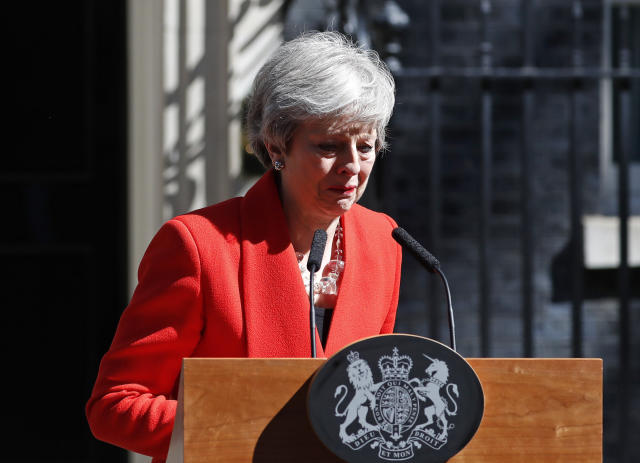
Leadership hopeful Liz Truss said: “Very dignified statement from the Prime Minister. She has put her all into the job and has shown huge resilience at this difficult time. Thank you.”
Michael Gove, who remained loyal to Mrs May throughout her time in office, said: “A moving speech from a Prime Minister who deserves our respect and gratitude.”
Just hours after Theresa May resigned, Foreign Secretary Jeremy Hunt and senior MP Sir Graham Brady both announced they are entering the race to take over as leader and Prime Minister.
The final straw of her doomed premiership came when a last-gasp effort to win support for her Withdrawal Agreement Bill backfired spectacularly and it became obvious her Brexit deal was dead in the water.
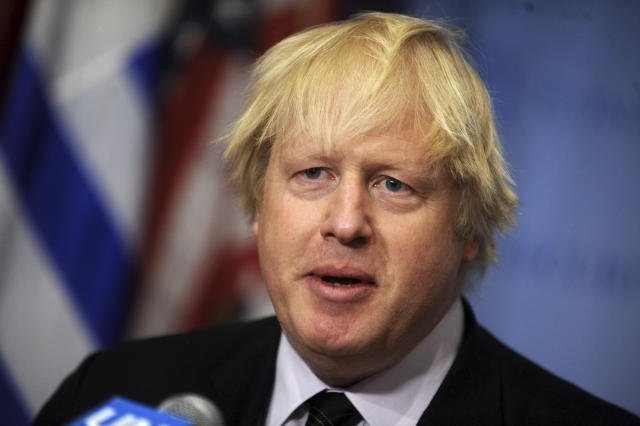
Brexiteers within her own party were enraged by the concession of the offer of a potential second referendum and customs union arrangement announced on Tuesday.
She also lost the support of many senior Cabinet members who made it clear her time was up.
Labour and the DUP also said they would not support the deal.
Andrea Leadsom dealt another blow when she quit as Commons leader on Wednesday evening saying she had lost confidence Mrs May would "deliver on the referendum result".
Mrs May delivered her speech this morning shortly after meeting the chairman of Tory backbenchers at 9am.
Her announcement means she will still be in power for Donald Trump’s state visit on 3-5 June.
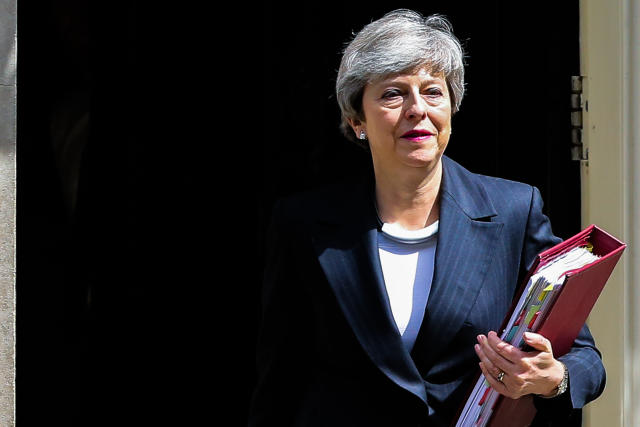
Theresa May’s failure to lead Britain out of the EU ultimately led to her demise as Prime Minister.
After campaigning for Remain during the Brexit campaign, she faced an uphill struggle to persuade anybody to believe in her born-again Brexiteer credentials.
Despite her often repeated soundbite of 'Brexit means Brexit', the deal she managed to negotiate with the EU was essentially deemed not Brexit-y enough for the hardline Eurosceptics in her party.
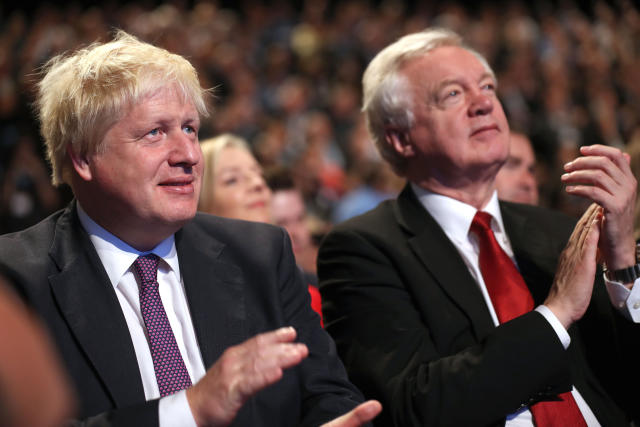
A number of her own MPs refused to be won over and voted against her deal - some of them on each of the three occasions she put it before MPs - and her last-gasp effort to win over the Commons was what eventually forced open the exit door.
Before January 2017 hardly anyone had an opinion on a no-deal Brexit. But after Theresa May introduced the notion that ‘no deal was better than a bad deal’, the idea of abandoning the difficult negotiations with the EU and leaving without an agreement was seized upon by Eurosceptic Tories.
Warnings about the consequences of no deal - food shortages, expensive groceries, miles-long queues at the Dover border, compromised safety for citizens - weren't enough to persuade rebel MPs to back a deal they feared could potentially tie the UK to Brussels indefinitely.
It was clear by spring of this year Mrs May no longer - or never had - believed no deal was a viable option. Unfortunately for her, Brexiteer MPs disagreed and remained willing to vote down her deal.
Theresa May inherited a slim majority when she took over as Prime Minister.
Cashing in on her apparent popularity and wishing to gift herself a smoother ride through Parliament, Mrs May called a General Election to take place in June 2017.
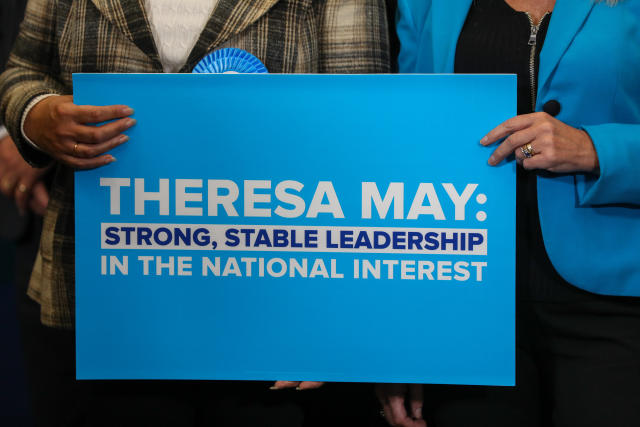
But her campaign slogan - urging voters to back her ‘strong and stable leadership’ - didn’t work. During the campaign support for Labour and Jeremy Corbyn surged and voters abandoned May.
She ended up losing her majority and was forced into partnership with the DUP, making it much more difficult for her to get Brexit legislation approved.
Theresa May premiership was beset by a record number of resignations.
36 minister have quit during her time in office, many in protest at the way she has dealt with - or failed to deal with - Brexit.
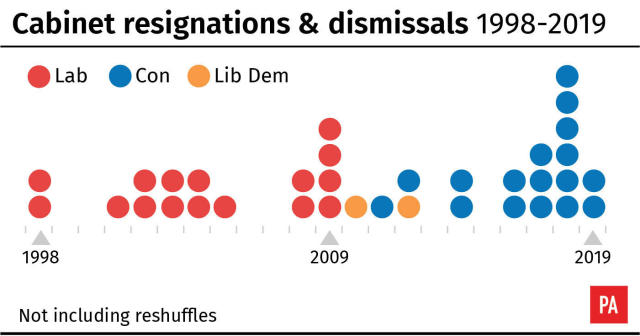
That works out at a rate of roughly 1.5 resignations per month, although in practice they tend to come in packs after a major event.
The resignation of Andrea Leadsom as Leader of the House of Commons is widely seen as the death blow to Mrs May, demonstrating beyond dispute that she is unable to win the support of the Tories.